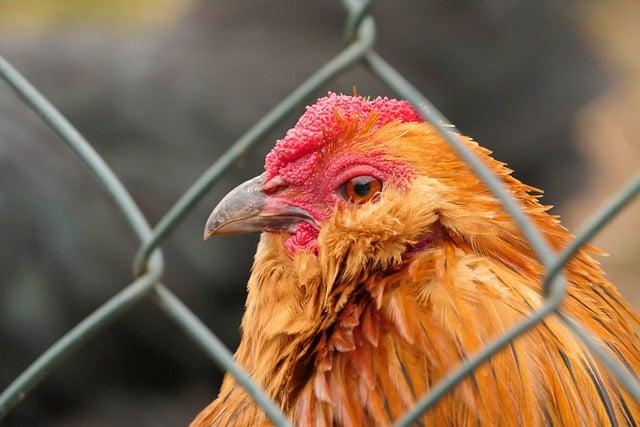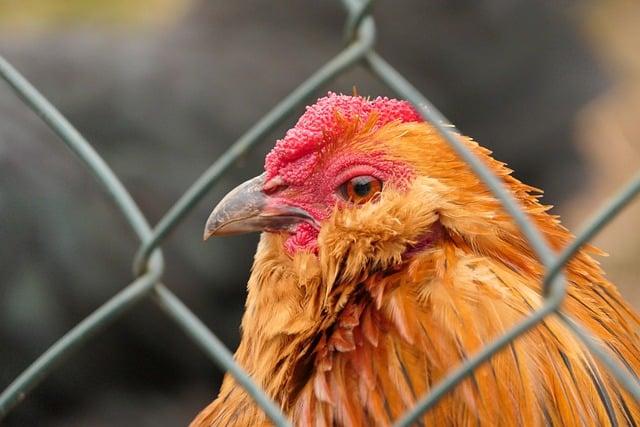Imagine coming home after a long day, greeted by your wagging companion, eyes sparkling with joy. You want to treat your furry friend to something special, and what could be better than a nutritious, homemade egg? Cooking an egg for your dog is simple and rewarding. Just crack an egg into a non-stick pan, scramble it gently, and cook until firm. This protein-packed delight not only satisfies their taste buds but also supports their health. Show your love with this easy recipe, and watch your pup thrive!
Contents
- Understanding the Nutritional Benefits of Eggs for Dogs
- Choosing the Right Cooking Method for Optimal Flavor and Safety
- Essential Tips for Preparing Eggs to Maximize Digestibility
- Incorporating Eggs into Your Dogs Diet for Balanced Nutrition
- Q&A
Understanding the Nutritional Benefits of Eggs for Dogs
Eggs are a powerhouse of nutrition, offering a wide array of benefits that can enhance your dog’s diet. Rich in high-quality protein, they provide essential amino acids that are crucial for muscle development and overall health. This makes eggs an excellent addition for active dogs or those in need of weight management, as protein helps to keep them feeling full and satisfied.
In addition to protein, eggs are packed with vitamins and minerals that contribute to your dog’s well-being. They contain **Vitamin A**, which supports healthy skin and vision, and **B vitamins**, which play a vital role in energy metabolism. Furthermore, the presence of **Vitamin D** aids in calcium absorption, promoting strong bones and teeth. Including eggs in your dog’s diet can help ensure they receive these essential nutrients.
Eggs are also a great source of healthy fats, particularly omega-3 fatty acids, which are known for their anti-inflammatory properties. These fats can help improve your dog’s coat condition, making it shinier and healthier. Additionally, they support cognitive function and heart health, making eggs a beneficial treat for dogs of all ages.
Lastly, the versatility of eggs makes them easy to incorporate into your dog’s meals. Whether scrambled, boiled, or poached, they can be served alone or mixed with other dog-friendly ingredients. Just remember to cook them thoroughly to eliminate any risk of salmonella. By adding eggs to your dog’s diet, you can provide a delicious and nutritious boost that supports their overall health and vitality.
Choosing the Right Cooking Method for Optimal Flavor and Safety
When it comes to preparing eggs for your dog, selecting the right cooking method is essential for enhancing flavor while ensuring safety. Dogs can enjoy eggs in various forms, but some methods stand out for their health benefits and palatability. **Boiling** is one of the simplest and safest ways to cook eggs. This method retains most of the nutrients and eliminates the risk of harmful bacteria, making it a great choice for your furry friend.
Another excellent option is **scrambling** eggs. This method allows for a delightful texture that many dogs find appealing. When scrambling, use minimal oil or butter to keep the dish healthy. You can also mix in some dog-friendly ingredients, such as spinach or carrots, to boost the nutritional value while keeping your dog excited about mealtime. Just be sure to cook the eggs thoroughly to avoid any potential health risks.
For those looking to add a bit of variety, consider **baking** eggs into treats. This method not only enhances the flavor but also allows you to incorporate other wholesome ingredients. You can create a delicious egg-based treat by mixing eggs with ingredients like pumpkin or peanut butter, then baking them into bite-sized goodies. This approach not only provides a tasty snack but also ensures that your dog receives a balanced treat without any harmful additives.
Lastly, **poaching** eggs is another method that can be beneficial. This technique allows the egg to cook gently in water, preserving its nutrients while keeping it moist and flavorful. Poached eggs can be served alone or mixed with your dog’s regular food for an extra boost of protein. Regardless of the method you choose, always ensure that the eggs are cooked thoroughly to eliminate any risk of salmonella or other pathogens, keeping your canine companion safe and healthy.
Essential Tips for Preparing Eggs to Maximize Digestibility
When preparing eggs for your dog, it’s crucial to focus on methods that enhance their digestibility. Cooking eggs not only makes them safer by eliminating harmful bacteria but also breaks down proteins, making them easier for your dog’s digestive system to absorb. Here are some essential techniques to consider:
- Boiling: This method involves cooking eggs in water until they are hard-boiled. Boiling is a simple way to prepare eggs without adding any fats or oils, ensuring that your dog receives a healthy treat. Once cooked, chop the eggs into small pieces to prevent choking.
- Scrambling: Scrambled eggs can be a delicious option for your furry friend. Use a non-stick pan and cook the eggs without adding butter or oil. Stir continuously to ensure they cook evenly and remain fluffy. This method allows for easy mixing with other dog-friendly ingredients.
- Poaching: Poached eggs are another excellent choice, as they are cooked gently in water. This method preserves the nutrients while keeping the egg soft and easy to digest. Just be sure to let the egg cool before serving it to your dog.
- Oven Baking: Baking eggs in the oven can be a unique way to prepare them. Whisk the eggs and pour them into a greased muffin tin, then bake until set. This technique allows for portion control and can be a fun way to incorporate other dog-safe ingredients like vegetables.
Regardless of the cooking method you choose, it’s important to avoid adding any seasonings, salt, or spices, as these can upset your dog’s stomach. Always ensure that the eggs are fully cooked to eliminate any risk of salmonella. Additionally, start with small portions to monitor your dog’s reaction, especially if they are trying eggs for the first time.
Eggs are a fantastic source of protein and essential fatty acids, making them a nutritious addition to your dog’s diet. By preparing them properly, you can maximize their health benefits while minimizing any potential digestive issues. Remember to consult with your veterinarian if you have any concerns about introducing new foods into your dog’s diet.
Incorporating Eggs into Your Dogs Diet for Balanced Nutrition
Eggs are a powerhouse of nutrition, offering a rich source of protein, essential fatty acids, and vitamins that can significantly enhance your dog’s diet. When incorporated correctly, eggs can provide your furry friend with the necessary nutrients to support their overall health. They are particularly beneficial for dogs with specific dietary needs, as they are easily digestible and can help maintain a balanced diet.
When preparing eggs for your dog, it’s crucial to choose the right cooking method to preserve their nutritional value. **Boiling** or **scrambling** eggs without any added oils, butter, or seasonings is the best approach. This ensures that your dog receives all the benefits without any harmful additives. Here are a few cooking methods to consider:
- Boiled Eggs: Simply place eggs in a pot of water, bring to a boil, and let them cook for about 10-12 minutes. Once cooled, peel and chop them into bite-sized pieces.
- Scrambled Eggs: Whisk eggs in a bowl and cook them in a non-stick pan over low heat, stirring frequently until fully cooked. Avoid using any oils or butter.
- Poached Eggs: Gently crack an egg into simmering water and cook until the white is set but the yolk remains runny. This method retains most nutrients and is easy for dogs to digest.
Incorporating eggs into your dog’s meals can also be a delightful treat. You can mix cooked eggs with their regular food or serve them as a standalone snack. **Eggs are not only tasty but also versatile**, making them an excellent addition to homemade dog treats or as a topping for kibble. Just remember to introduce eggs gradually into your dog’s diet to monitor for any adverse reactions, especially if they are new to this protein source.
Q&A
-
Can I feed my dog raw eggs?
While some dog owners choose to feed their pets raw eggs, it is generally safer to cook them. Cooking eggs eliminates the risk of salmonella and makes the protein more digestible for your dog. Always prioritize your dog’s health by opting for cooked eggs.
-
What is the best way to cook eggs for my dog?
The best methods for cooking eggs for dogs are boiling or scrambling without any added oils, butter, or seasonings. Boiling is simple: just place eggs in a pot of water, bring to a boil, and let them cook for about 10-12 minutes. Scrambled eggs can be made by whisking eggs in a pan over low heat until fully cooked.
-
How often can I give my dog eggs?
Eggs can be a healthy addition to your dog’s diet, but moderation is key. A good rule of thumb is to offer eggs as an occasional treat, about 1-2 times a week, depending on your dog’s size and dietary needs. Always consult with your veterinarian to determine the right frequency for your pet.
-
Are there any health benefits to cooking eggs for my dog?
Yes, cooked eggs are a great source of protein, fatty acids, and essential vitamins and minerals. They can help support your dog’s skin, coat, and overall health. Including eggs in your dog’s diet can provide a nutritious boost, making them a valuable treat when prepared correctly.
Incorporating eggs into your dog’s diet can provide essential nutrients and enhance their overall health. By following these simple cooking methods, you can ensure your furry friend enjoys a delicious and nutritious treat. Start cooking for your dog today!

大家好,我是彼得潘,專業的手法身體治療師。我喜歡探索和研究各種主題,並透過與人工智慧的合作分享專業、實用、有趣的文章。我們定期進行人工審核,以確保內容的準確性。如果您發現文章中有任何不準確的地方,請隨時與我們聯繫,我們會及時糾正。您可以透過 [email protected] 與我們聯繫。



